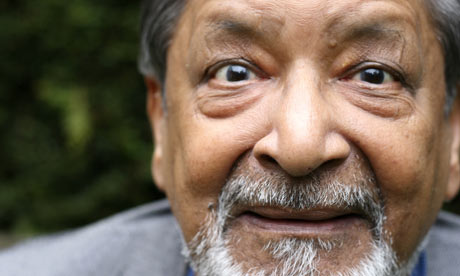This is a sequel to my points about Nabokov and about the ludicrous parochialism of Margaret Killjoy. In the Nabokov piece I discussed that the source of all human cruelty is the denial of another person’s reality; the cancelling out of what someone else really is in favour of what you want them to be. It doesn’t really matter whether that fantasy is positive or negative; the Nazis fantasized that Jews were supernatural villains, the Belgians under Leopold fantasized that the Congolese were nice, simple, cheerful chaps, and the results were pretty darn similar.
The reason I jumped on Killjoy’s ridiculous article was that it is a picture-perfect example of that kind of mind. The article reveals no knowledge of the realities of colonialism, or of its victims (and also, of its beneficiaries), but only a desire to be seen to have the right opinions. In other words, its author does not seem to want to understand, but wants to be seen as understanding. Some of my fellow skeptics will notice that this sort of thinking has taken root in the skeptic community
This kind of thinking tends to surface long before the explicit evils are become visible. Denial of reality always ends in disaster. The question is: how does one guard against it? My answer: with a little help from V.S. Naipaul.

Now, before anyone says anything, not only do I know about Sir Vidya’s rather peculiar views on women writers, I was actually there when he announced that “inevitably for a woman, she is not a complete master of her house, so that comes over in her writing too.” That was the worst date idea I’d ever had.
So, believe me, I know full well that Naipaul isn’t anyone’s idea of a nice person. That is precisely why he is so valuable. The question everyone needs to ask themselves: do you want to be good or do you want to do good? If you don’t get the distinction, I hope it will become clear as this goes on.
Naipaul is a real misanthrope; not someone who affects not to like humanity, but someone who really cannot stand it. This has lead to some stupid accusations of racism, but the truth is that whenever he is in any place, he makes a beeline towards the most superstitious and backward part of it, hence his devastating collumn on the Republican National Convention.
The point is this: despite Naipaul’s resemblance to a malevolent suet pudding, the mode of thinking he uses to write, prevents him from the dehumanization that so many writers are prone to, especially when they write about the developing world.
Another story: I found myself sitting on a plane next to a delightful young lady from Kenya (we turned out to have the same birth-town) while I was reading Naipaul’s The Crocodiles of Yamousoukrou. I handed her some of the opening paragraphs and she was delighted by the same thing that had fascinated me: Naipaul’s ability to get the flavour and feel of the various African nations spot on. As we were airborn and our conversation turned to the circus of modern media reporting on the so-called Dark Continent, I was finally able to put into words what Naipaul did that was different: “You get right-wing journalists who go to Africa and say that it’s all gone to the dogs since the White Man left. You get left-wing journalists who go to Africa and say that it’s all gone to the dogs because the White Man was there in the first place. You practically never get someone who gets the point that, for the overwhelming majority of the billion lives of that continent, the White Man (i.e. the Euro-American) doesn’t really come in to it”.
(Parenthesis: someone here is going to bring up the Boers, but the Boers are an African tribe)
That is what Naipaul does understand, and does do in his work. It is the single most important grant of respect, the scrupulous attempt to understand another’s reality, for which there is no substitute and without which no real respect is every possible. Stated the other way, you can be as grumpy and cantankerous and misanthropic as you like, you don’t have to sugar-coat anything or pretend to like anyone, as long as you make it your first order of business to understand their reality and refuse to sacrifice it to your preconceptions.

If you want an example of the way that syrupy praise is no substitute whatsoever for that grant of reality, look at Hillary Clinton who claims that It Takes A Village (the title of her book) comes from an “African proverb”. There is less of a unified “Africa” in that sense than there is a unified Europe. She followed it up with another saying she, quote, “once heard from the Masai tribe in Kenya.” As Mark Steyn pointedly asked “Any tribesman in particular? Or maybe they all yelled it out in unison as her motorcade passed by…” There’s another point that Steyn missed: if someone is citing the Masai tribe in Kenya, chances are she’s a phony; it’s like a chap efusing about Shakespeare while only quoting “To be or not to be/That is the question…”.
If Clinton were just to call Africa “Bongo-bongo land” it would be less of an insult, as she would at least not be pretending. And here is where things move from the insulting to the criminal: following Kenya’s last election – a peaceful, democratic transition of power, of which many Kenyans are rightfully proud – the US administration proceeded to stick its nose in, and inform the Kenyan electorate that “choices had consequences” and that they were not happy with this one. Now, let’s leave aside the insult, and also the way that Americans, in my view quite rightly, reacted when the Guardian tried to pull something similar, and just note that this piece of bullying almost collapsed the Kenyan economy.
This is what happens when you forget that others are real.
Back to Naipaul, he never commits this essential and basic sin, not because he is nice, or cheerful, or sympathetic, or out to redress historic grievance, or any other rot – but because he refuses to write dishonestly. Pick up a copy of A Bend In The River, say, or Finding The Centre, or his piercing analysis of the Islamic world, Among The Believers, and you will a fixation on detail and fact that is hard to equal. By simply talking to people, listening and taking down what they say, and recording what he sees and hears as best as he can, he treats his subjects with a respect that all of us should emulate.
After all, who wants to say that in their work they are a worse person than Naipaul?
